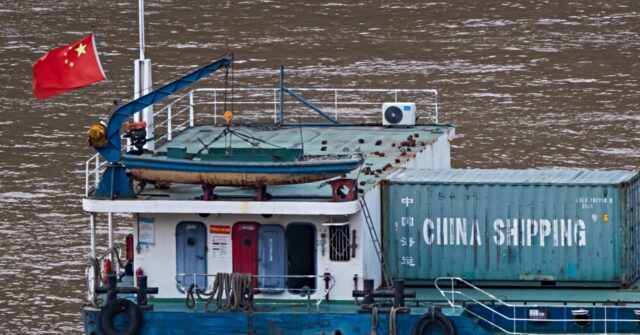A high-level delegation from South Africa is currently in Beijing, seeking to increase bilateral trade and secure more Chinese investments before U.S. tariffs of 30 percent on South African exports take effect in August.
South African Deputy President Paul Mashatile, speaking at a forum on the sidelines of the China International Supply Chain Expo (CISE) last week, noted that his country’s annual trade deficit with China has grown from less than $1 billion to over $9.7 billion since the turn of the millennium.
“We need to address challenges such as access to the Chinese market due to factors like tariff and non-tariff barriers, distance and competition from other countries,” Mashatile said.
The South China Morning Post (SCMP) on Sunday quoted experts who thought Mashatile would be disappointed by China’s response, because the Chinese are already buying $30 billion a year in products from South Africa – more than double what the U.S. buys – and have limited capacity or desire to dramatically increase those purchases.
China might be willing to absorb some more of South Africa’s agricultural products, but the Chinese are zealously protective of the high-value markets South Africa wants to penetrate, such as digital technology and pharmaceuticals.
South Africa also faces a great deal of competition from its neighbors, as China has been buying more African goods to reward countries that refuse to recognize Taiwan. Also, China’s troubled economy has reduced demand for imports beyond agriculture and raw materials.
In a similar vein, China is already one of the largest investors in South Africa, so there might not be a great deal of Chinese money left for the investments in renewable energy, infrastructure, and the digital economy that Mashatile is seeking.
Tourism is an industry that may have room for growth. South African Minister of Tourism Patricia de Lille was part of the expedition to Beijing. She told her Chinese audience that tourism helps to build “people-to-people relationships” – a buzz phrase that has become very popular with the Chinese Communist government – and those relationships can become springboards for business deals.
Conversely, de Lille proposed leveraging China’s Belt and Road (BRI) infrastructure programs in South Africa to bring in more tourists. One of the minister’s objectives in Beijing was to learn what Chinese tourists wanted, so South African companies could cater to their needs.
Read the full article here


